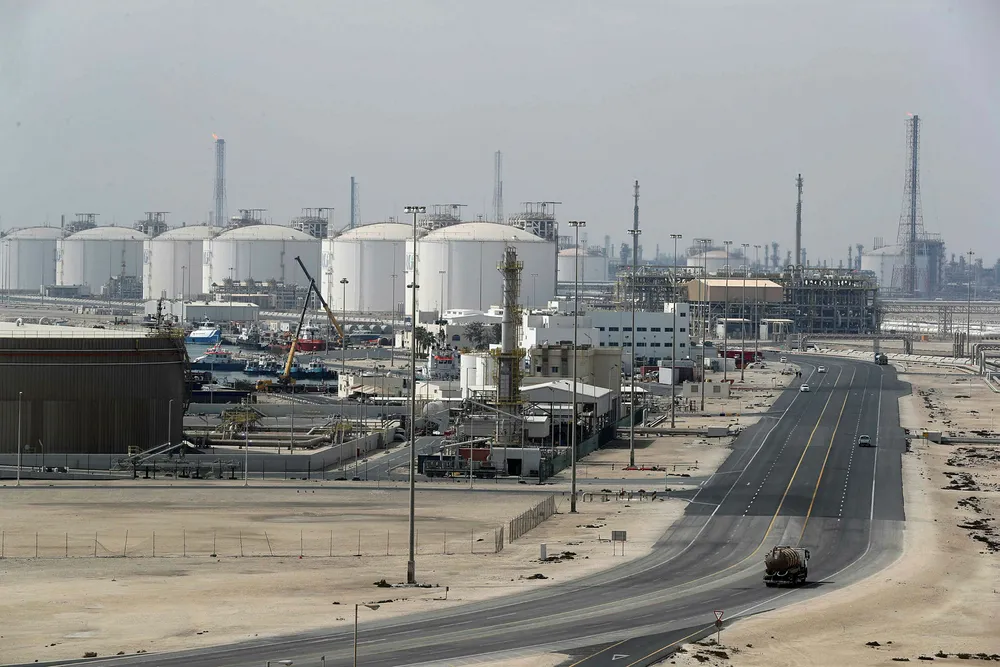Expert raises prospect of no new LNG projects after Qatar expansion
Gas Strategies chief executive Pat Breen posits 'extreme' scenario, amid fast-changing, uncertain LNG market, although base case forecast offers hope

No new liquefied natural gas export projects may be required to meet global demand after Qatar’s huge LNG expansion scheme, according to one grim scenario painted by a leading gas industry expert.
Pat Breen, chief executive of London-based consultancy Gas Strategies, told the Virtual Gastech Summit last week that, while this is a “reasonably extreme” scenario, it highlights how fast the energy transition could move, spurred on by the Covid-19 pandemic.
“One of the scenarios we’ve looked at recently leads to no further calls for (LNG) supply after a Qatar expansion,” he told webcast listeners, basing this view on certain assumptions about the key markets in Europe, China and India.
In Europe, Gas Strategies’ assumption is that the continent presses on with its “net zero by 2050” target, so causing LNG imports to cease by 2045 after peaking at 110 million tonnes per annum in 2025.
China and India key markets
“For China,” explained Breen, “we’ve taken a scenario of gas demand growth post-2030 being overtaken by renewables and biofuels,” with LNG imports standing at 90 MMtpa in 2040.
As for India, the underlying assumption is for growth in gas-fired power generation to be constrained by renewables expansion and the continuing dominance of coal, leading to LNG imports growing only 50% between now and 2050.
If these suppositions turn out to be correct, Breen said LNG demand in 2035 would be 115 MMtpa less than its 600 MMtpa base-case — or central case — forecast and could be met by existing and sanctioned projects, plus the planned 49-MMtpa Qatar expansion.
“Such a scenario suggests the real prospect that value in LNG can be best supported if the industry stops building,” he said.
New market phase
“We have no doubt that the LNG industry has entered a new phase, perhaps Covid-19 assisted or accelerated, rather than driven.”
Breen described how early this year Gas Strategies talked with LNG clients about the need to run a more highly competitive, low-margin business than they have been accustomed to.
“We know that this will be challenging to do given wider corporate cultures that will constrain them, given the resistance to accepting the accelerating energy transition, and given established practices and assumptions underlying activities, assumptions that people don’t even realise they’re making," he said.
Breen argued that “at the end of the day, we have reached the point at which LNG is really no longer so special,” adding that, although there are many uncertainties ahead for the business, there is a fundamental need to “manage differently for a different world …that seems to have been accelerated by Covid-19".
Policy shifts
However, he also stressed the growing importance that unpredictable government policies — such as China’s seven-year plan — could play in how the LNG market evolves.
“Policies sit very large as a key question for us at the moment and it’s something where we need to be prepared to look at scenarios for quite different outcomes," Breen said.
While Gas Strategies’ “reasonably extreme” scenario will not be welcomed by the LNG sector, Breen is quick to point at that the consultancy’s central case points to “very significant growth out to the 2040s.”
'Growth business' amid Covid-19
On a more positive note for the moribund sector, he pointed out that LNG sales did actually grow over the last year from 232.7 MMtpa to 236.4 MMtpa.
“We’re still getting growth and I hold that LNG sits there with alcohol and personal protective equipment as (a) growth business in this Covid year.”
According to Gas Strategies’ data, the total capacity of unsanctioned projects amounts to more than 300 MMtpa which is enough to meet demand in its central case market scenario.
Breen argued that some projects will be better placed than others to proceed, but highlighted that “the prospect of a further wave of US capacity is diminishing,” partly due to high marginal costs.
(Copyright)